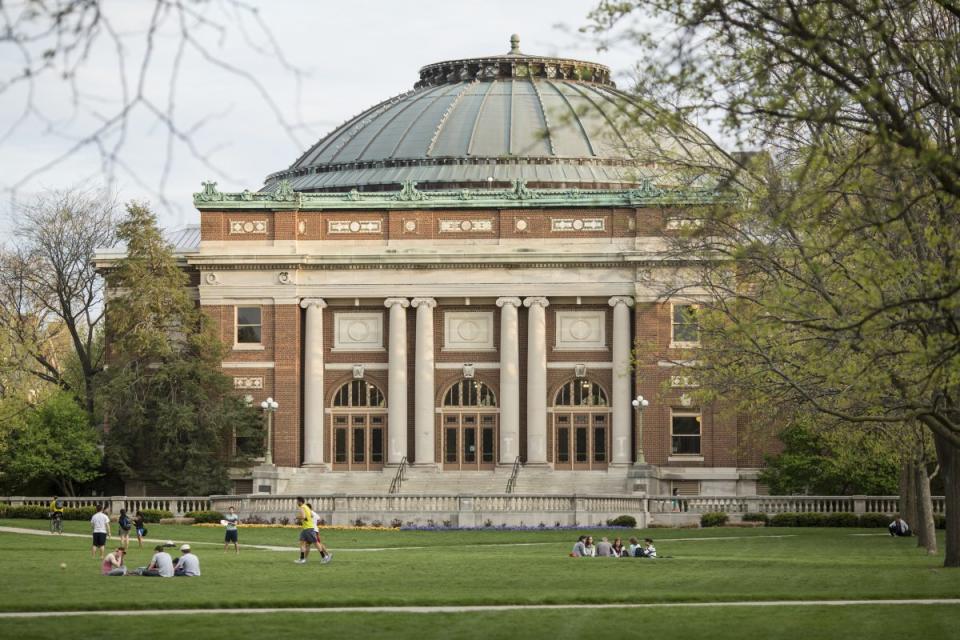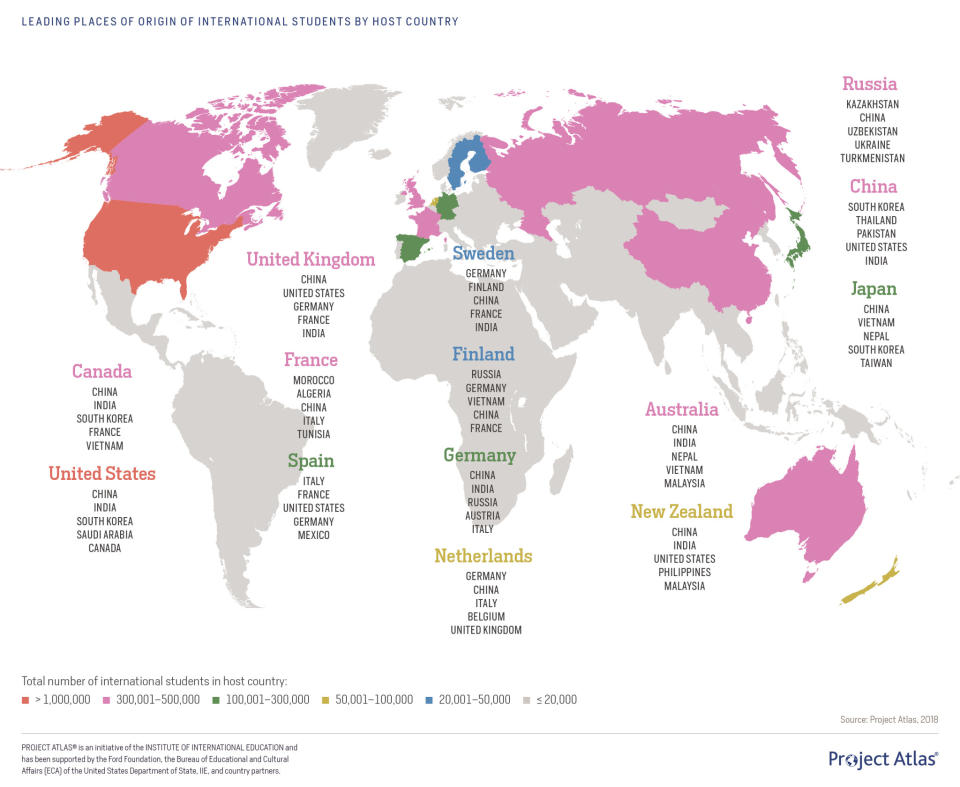This is the first university to insure itself against a drop in Chinese students

When Jiayan Xu, a 22-year-old student from China applied for graduate schools in the U.S. last year, she was looking for a school with a good reputation and a sizable number of Chinese students where “it’ll be easier to adapt and fit in.”
The University of Illinois at Urbana-Champaign (UIUC) didn’t disappoint her. Majoring in financial engineering, a joint program by the university’s business school and engineer school, she only has five out of 62 classmates that are non-Chinese. Surrounded by Chinese restaurants and bubble tea stores, Xu doesn’t even need to speak English outside the classroom.
Students from China like Xu now account for about one-tenth of nearly 50,000 students at UIUC. They have brought the school steady revenue at a time when states are cutting back on education funding. International students are less likely to get financial aid and often pay full tuition. In Xu’s case, her parents in China pay $50,000 a year. Such a large group of students from a single country concerned Jeff Brown, when he became the dean of the Gies College of Business at UIUC in August 2015.
“One of the risks that I pointed out was that we had a large concentration of our revenue was coming from tuition payments from students from China,” Brown told Yahoo Finance. “We loved having Chinese students as part of our college, but there was a part of the risk there that was out of our control.” Unpredictable events like policy changes in student visas or a health scare may affect Chinese students’ enrollment and would cause an enormous financial disruption to the school.
While UIUC keeps courting Chinese students and diversifies its international student base, Brown knew the only way to deal with risks that he has no control over is to buy insurance. The risk manager scholar also knew his school could negotiate a better price if the insurance deal was larger, so he approached colleagues at the engineering school, where there is a big concentration in Chinese students majoring in STEM (Science, Technology, Engineering and Mathematics).
So, the two UIUC schools teamed up and worked with Lloyd’s of London, known as a specialist insurer, to become the first university to insure itself against a big drop in tuition revenue from Chinese students. The schools paid $424,000 for a three-year contract that began in July 2017. The insurance, with a coverage of up to $60 million, will be triggered in the event of a 20% drop in revenue from Chinese students at the two colleges in a single academic year as a result of a “specific set of identifiable events,” like a pandemic or a visa restriction.
Trump has become the main risk factor

When Brown first came up with the idea of insuring the school, Donald Trump was still one of 18 Republican candidates running for office. But one year into the insurance contract, many of Brown’s concerns seem more likely to become a reality now that Trump was elected president. This year, the university has seen the first decline in Chinese students enrollment in at least seven years.
Trump has been taking a hard line on both immigration and China. During the 2017-18 academic year, the number of new international students enrolling at American institutions fell by 6.6%, according to the Institute of International Education, and experts believe it’s partly due to the Trump administration’s immigration policy.
Chinese students seem to be especially at peril during Trump’s trade war with Beijing. In June, the U.S. State Department shortened the length of visas for Chinese graduate students studying aviation, robotics and advanced manufacturing to one year from five. Earlier this year, White House adviser Stephen Miller even suggested a ban on student visas for all Chinese nationals. The proposal got rejected, but the Trump administration is now reportedly considering new background checks and other restrictions on Chinese students over espionage concerns.
“Those are examples of the kinds of things we were worried about, and so it makes us very happy that we have this insurance in place, although we’d be even happier if some of those conversations weren’t taking place,” said Brown.
He emphasized that buying the insurance doesn’t undermine the school’s commitment to luring Chinese students. “We continue to invest there, but because this risk was hanging over there, over our head, it made us more cautious,” Brown said. “By insuring against the risk, we actually feel more comfortable investing even more heavily in recruiting students from China because we’ve been able to offload some of that risk.
If the worst case happens, Brown said the insurance buys the school time to adjust programs and react more thoughtfully. For now, he is glad the school has entered the deal. “I definitely sleep better at night, knowing that we have it in place, but I hope we never use it.”
Krystal Hu covers technology and economy for Yahoo Finance. Follow her on Twitter.
Read more:
Why an Amazon job costs New York more than Virginia
Amazon bought Whole Foods a year ago. Here’s what has changed
We entered the multi-million dollar business behind your Amazon returns

